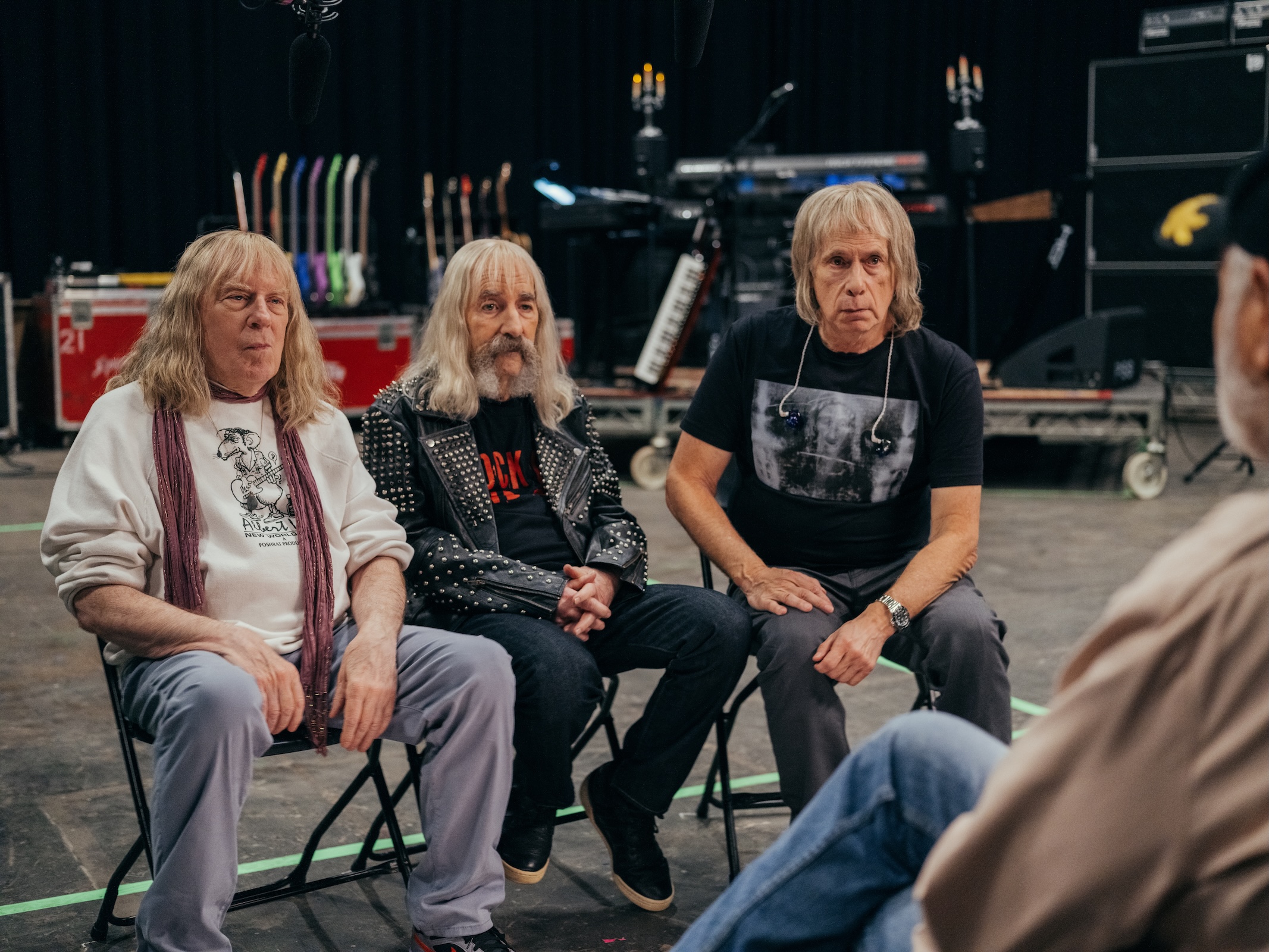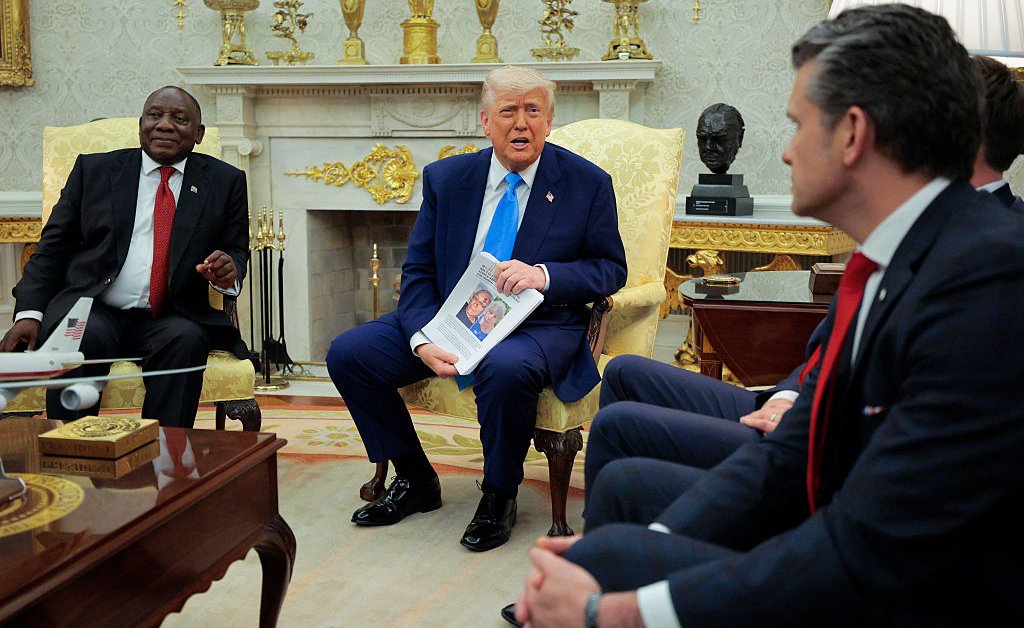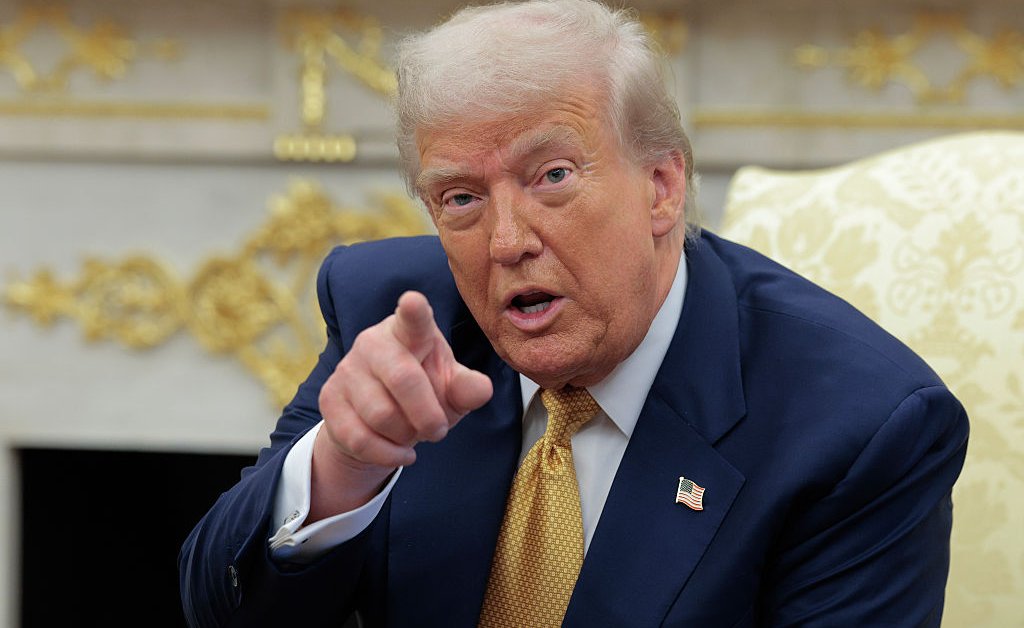
Sequels to much-loved and oft-quoted movies are never a sure thing, especially when they arrive more than 40 years after the fact. Enter Spinal Tap II: The End Continues. The problem isn’t that people have forgotten about Rob Reiner’s glorious 1984 fake rock documentary This Is Spinal Tap; it’s that they remember it all too well. No movie poked holes in the stereotypical puffy rock-star ego more effectively than Spinal Tap did, and there are legions of fans who have the film almost completely memorized. If you make a joke about a spontaneously combusting drummer or “turning it up to 11,” there’s barely a person on the planet who won’t know what you’re talking about. A sequel to This Is Spinal Tap seems nearly unfathomable, which might be why it’s taken 41 years to get one.
The good news is that Spinal Tap II mostly builds on the legacy of the earlier film, instead of just recycling its best jokes for nostalgia’s sake. Like the first film, this sequel is also directed by Reiner, again appearing in the guise of documentary filmmaker Martin di Bergi. His mission this time is to capture the band’s preparations for a big reunion show they don’t really want to do. After their raging success in the 1980s, the band has splintered apart, its three remaining members—you may recall that these guys can’t hang onto a drummer to save their lives—having moved on to other ways of making a living. Nigel Tufnel (Christopher Guest) runs a cheese shop in the fabulously not-fictional town of Berwick-upon-Tweed, assisted by his sweet wife, to whom he’s devoted. Derek Smalls (Harry Shearer) runs a somewhat dismal-looking glue museum, taking delight—or at least pretending to—in the many substances that can be used to bind one surface to another. David St. Hubbins (Michael McKean) plays in a mariachi band and also writes generic-sounding themes for true-crime podcasts, as well as telephone hold music. He plays a sample of the latter for di Bergi, elegantly and succinctly titled “Your Call Is Important to Us.” “It won a Holdie,” he says proudly.
It turns out that the daughter of their late manager, the ludicrously, charmingly named Hope Faith (Kerry Godliman), has inherited a contract from her father, demanding that the guys get together for one last show. Not having spoken in years—they’ve nursed their grudges for so long they barely remember what they’re about—they reconnect in an awkward meeting. Warily, they tune up their instruments and start rehearsing, crabbily needling one another as they get ready for that proverbial one last show. Gradually, they slip back into the rhythm of being in one another’s presence. In their aged state, they also spend a lot of time sitting down.
The gags are ridiculous, if gentle. The band needs some marketing gimmicks for their upcoming show. How about a bottled refreshment called Tap Water? (It’s exactly what it says on the label.) They work up old songs, like the eternal classic “Big Bottom,” with its legendary lyric, “How could I leave this behind?” Derek brings a new one he’s been working on, replete with gothic death imagery. (It’s called “Rockin’ in the Urn.”) There are several superstar cameos, and they’re nicely integrated into the movie’s slender plot. By the time you read this, you may already know who they are, though I still feel it’s only right not to give them away.

But Spinal Tap II is more touching than it is laugh-out-loud funny. We’ve all seen old rockers hauling out the gear for one last go-round. Reunion shows often have a vital, go-for-broke spirit, and this movie does too, in the sweetest possible way. Guest, McKean, and Shearer have no vanity, and in a world of smoothed-over, tucked-and-trim everything, that’s marvelous to behold. You’ll see skinny pants on not-so-skinny bodies, CBGB T-shirts stretched over gently sagging bellies, shaggy hair that looks too suspiciously full-bodied to be rooted in an actual scalp. Early on, the reunited guys have to solve a crucial problem: they need a drummer. After a loopy montage of unsuitable candidates (though I’d argue the tabla player has some promise), they find the right one, a firecracker named Didi Crockett (Valerie Franco).
Didi is young, spirited, and adorable, and Shearer’s Derek gazes at her with heart-shaped eyes as she rocks out behind the kit. Later, he hits on her, politely, and she rebuffs him just as gently. His face falls slightly when Didi’s girlfriend—sweet and enthusiastic, if vaguely patronizing toward the old dudes—comes bouncing in, but he rushes to hide his disappointment and greets her warmly. It’s just a lovely, bittersweet moment. Young people never seem to believe it when older folks tell them how quickly a life can fly by. It’s all right there in Shearer’s eyes, though he’s not done just yet; he can still have a crush, because anyone can. The grave’s a fine and private place. But why rush it, when there’s still rockin’ to be done?








